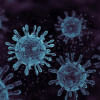Did the pandemic make me a worse person?

When universities formally resumed in-person classes, I was ecstatic beyond belief, about not sitting aimlessly in front of my laptop all day.
While going to 8 AM classes was an extreme sport on its own, the terrible traffic and the weather being as angry as my mother did not make things better. Still, I was determined to make the best of an already dire situation.
While Covid-19 no longer stands in my way of world domination, post-pandemic social awkwardness has taken its place. After nearly two years of being holed up in my room judging my questionable classmates while half-heartedly attending monotonous online classes, I practically forgot how to interact with strangers in the real world. For example, when an acquaintance asked me my major, my brain ordered the mouth to cough out the name of my former school.
The blunders do not end there, as I have become prone to talking about people who are in my immediate proximity. I have also retained the habit of muttering under my breath loud enough for teachers to notice and then ask me if I have something to say. And, apparently, it's rude to roll your eyes at someone mid-conversation. The glaring stares of disapproval I get in return make me question if I was always this impolite.
Jokes aside, small talk is not as easy as it once was. Stumbling and tripping over your words are now a habit, while the number of awkward silences and stares have increased exponentially. I have also become immensely self-conscious about myself, which results in my fight-or-flight response activating whenever I see a known face. Consequently, about half of my conversations nowadays is an internal rollercoaster of emotions.
Unfortunately, social awkwardness and anxiety being a package deal means that now I am dealing with both. The fear of tripping over my words keeps me from asking questions. Presentations are now twice as hard because I'm convinced that everyone is judging me. Additionally, the inability to properly communicate can sometimes result in feeling exhausted, overwhelmed, and lonely, despite being in a busy environment.
In the past two years, most of the socialising we have done was online, devoid of human contact and emotion. But there lies a solution to our problem; it's time for us to move beyond social media, and confront our issues by going out and speaking out.
Covid-19 was a significant and radical change in our lives, and most of us are still rusty from two years of social isolation. So, while the pandemic hasn't made me a worse person, it's made socialising that much harder for me.
Turns out Taaseen Mohammed Islam can write semi-decently at the expense of being able to do basic math. Send him pointers at [email protected]

 For all latest news, follow The Daily Star's Google News channel.
For all latest news, follow The Daily Star's Google News channel. 









Comments